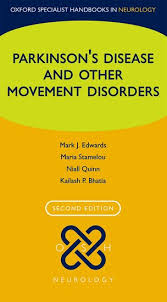Περιεχόμενα
Part I: Introduction
1:Introduction: 4E Cognition: Historical Roots, Key Concepts, and Central Issues, Albert Newen, Shaun Gallagher, and Leon de Bruin
Part II: What is Cognition?
2:Extended Cognition, Julian Kiverstein
3:Ecological-Enactive Cognition as Engaging with a Field of Relevant Affordances: The Skilled Intentionality Framework (SIF), Erik Rietveld, Damiaan Denys, And Maarten Van Westen
4:The Enactive Conception of Life, Ezequiel Di Paolo
5:Going Radical, Daniel D. Hutto and Erik Myin
6:Critical Note: So, What Again is 4E Cognition?, Ken Aizawa
Part III: Modelling and Experimentation
7:The Predictive Processing Hypothesis, Jakob Hohwy
8:Interacting in the Open: Where Dynamical Systems Become Extended and Embodied, Maurice Lamb and Anthony Chemero
9:Searching for the Conditions of Genuine Intersubjectivity: From Agent-based Models to Perceptual Crossing Experiments, Tom Froese
10:Cognitive Integration: How Culture Transforms Us and Extends our Cognitive Capabilities, Richard Menary
11:Critical Note: Cognitive Systems and the Dynamics of Representing-in-the-world, Tobias Schlicht
Part IV: Cognition, Action, and Perception
12:The Body in Action: Predictive Processing and the Embodiment Thesis, Michael D. Kirchhoff
13:Joint Action and Ecognition, Deborah Tollefsen and Rick Dale
14:Perception, Exploration, and the Primacy of Touch, Matthew Ratcliffe
15:Direct Social Perception, Joel Krueger
16:Critical Note: Bodily Experience, Action and Perception from the 4e Perspective, Sven Walter
Part V: Brain-Body-Environment Coupling and Its Perception
17:Disclosing the World: Intentionality and 4e Cognition, Mark Rowlands
18:Building a Stronger Concept of Embodiment, Shaun Gallagher
19:Motor Intentionality, Elisabeth Pacherie
20:The Extended Body Hypothesis: Referred Sensations from Tools to Peripersonal Space, Frédérique De Vignemont
21:Critical Note: Brain-body-environment Couplings: What do they Teach us about Cognition?, Arne M. Weber and Gottfried Vosgerau
Part VI: Social Cognition
22:Embodied Resonance, Vittorio Gallese and Corrado Sinigaglia
23:Why Engagement? A Second Person Take on Social Cognition, Vasudevi Reddy
24:The Intersubjective Turn, Hanne De Jaegher
25:The Person Model Theory and the Question of Situatedness of Social Understanding, Albert Newen
26:False Belief Understanding, 4E Cognition and the Predictive Processing Paradigm, Leon De Bruin
27:Critical Note: How Revisionary are 4E accounts of Social Cognition?, Mitchell Herschbach
Part VII: Emotion
28:Thinking and Feeling: A Social-developmental Perspective, Peter Hobson
29:Beyond Mirroring: 4E Perspectives on Empathy, Dan Zahavi and John Michael
30:Embodiment of Emotion and its Situated Nature, Evan W. Carr, Anne Kever and Piotr Winkielman
31:Enacting Affectivity, Giovanna Colombetti
32:Critical Note: 3Es are Sufficient, but Don ‘t Forget the D – A Critical Note on Situated Affectivity, Achim Stephan
Part VIII: Language And Learning
33:The Embodiment of Language, Mark Johnson
34:The Embodiment of Concepts: Theoretical Perspectives and the Role of Predictive Processing, Michiel Van Elk and Harold Bekkering
35:Origins and Complexities of Infant Communication and Social Cognition, Ulf Liszkowski
36:Developing an Understanding of Normativity, Marco F. H. Schmidt and Hannes Rakoczy
37:Critical Note: Language and Learning from the 4e Perspective, Hans-Johann Glock
Part IX: Evolution and Culture
38:The Evolution of Cognition: A 4e Perspective, Louise Barrett
39:Mindshaping, Tadeusz W. Zawidzki
40:Bringing Things to Mind: 4Es and Material Engagement, Lambros Malafouris
41:Culture and the Extended Phenotype: Cognition and Material Culture in Deep Time, Kim Sterelny
42:Critical Note: Evolution of Human Cognition, Andreas Roepstorff and Tobias Starzak
Part X: Applications
43:Communication as Fundamental Paradigm for Psychopathology, Kai Vogeley
44:Scaffolding Intuitive Rationality, Cameron Buckner
45:Robots as Powerful Allies for the Study of Embodied Cognition from the Bottom Up, Mat?j Hoffmann and Rolf Pfeifer
46:Interpersonal Judgments, Embodied Reasoning and Juridical Legitimacy, Somogy Varga
47:Embodied Cognition and the Humanities, Amy Cook
48:Embodied Aesthetics, Barbara G. Montero












